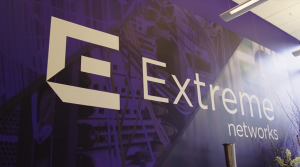Akamai Provides Game Companies Shelter from Thunderstorms in the Cloud
![]() As casually as customers approach the Internet and the cloud, there’s still a bit of risk that we take on personally every time we go online. This fact is amplified by leaps and bounds for companies that provide content to clients—they’re online 24/7, 60 seconds of every minute, and uptime is a factor. It has been a stormy past few weeks for the online gaming industry when hackers struck and compromised data on the PlayStation Network and even struck Square-Enix.
As casually as customers approach the Internet and the cloud, there’s still a bit of risk that we take on personally every time we go online. This fact is amplified by leaps and bounds for companies that provide content to clients—they’re online 24/7, 60 seconds of every minute, and uptime is a factor. It has been a stormy past few weeks for the online gaming industry when hackers struck and compromised data on the PlayStation Network and even struck Square-Enix.
Many of these issues are directly related to how game publishers connect with customers—in a sort of way, everyone must use the roads so sometimes in the forest we run into highwaymen. As a result, a company dedicated to making data delivery faster might be the best place to find solutions to either avoiding or neutralizing those hazards.
Akamai, a global leader for online game delivery, has introduced Electronic Software Delivery in March as part of their suite of download acceleration technology. We already know them extremely well for their media delivery with partnerships with Hulu and YouTUBE in order to stream video rapidly across the Internet. Gaming is no different and requires a great deal of communication in order to function and keep gamers happy.
The growing adoption of the web has meant that companies worldwide have turned to the Internet for on-demand delivery of various types of content. Enterprise application vendors, software solution providers, consumer electronics companies, anti-virus manufacturers, semiconductor companies and game developers are increasingly distributing content online, employing various download strategies to drive sales and maximize revenue. However there continue to remain challenges associated with user experience, performance and scale that need be addressed to provide a predictable and reliable platform for content delivery. Electronic Software Delivery is Akamai’s next generation software downloads solution that addresses the quality of experience, scale, workflow and analytics requirements of large software vendors for electronic software delivery.
Exposing personal data to would-be hackers isn’t the only danger that all Internet service companies also face there’s a multitude of predators in the cyber-ecology from Distributed Denial of Service attacks to worms looking to exploit outdated technology. Akamai uses their own distributed networks to cache and deliver data for gaming companies that can also help protect their clients from these sorts of attacks by putting their own servers in the way.
In their own State of the Internet document, Akamai mentions that the ever-popular online game Minecraft has even suffered DDoS attacks; although, in a funny turn, the attacks against the game weren’t originated due to politics but because the fan base desired further updates. As these sorts of attacks are on the rise, more and more gaming companies who need online presence and delivery capabilities have been turning to acceleration networks for solutions. PopCap Games, Turbine, Perfect World Entertainment (a free-to-play MMORPG publisher) are all listed as featured clients on their gaming site right now as taking advantage of their technology.
“Working with folks in the game industry,” says Kris Alexander, Chief Strategist Connected Devices and Gaming at Akamai gives them an advantage when it comes to predicting future attacks and challenges. He explains that “…many [game companies] are cutting-edge for the rest of the software industry, 18-24 months in advance. They tend to run into challenges before anyone else does.”
Not only would Akamai provide quicker content delivery to needy gamer customers, but the distribution of their networks also provides a sort of active-mesh against potential slowdowns. If a section of the Internet suddenly suffers a drop in bandwidth they could seamlessly (and potentially transparently) shift clients from one server to another in order to maintain their download speeds. A real must when it comes to delivering content to players who quickly become frustrated over minute-long waits.
As social games come to the forefront of the casual culture of the Internet and gamification makes its debut on the global scene, we’ll probably be seeing more need for acceleration services to provide quick and stable content to gamers. It also means that these networks will be viewed as potential soft targets by the Internet highwaymen waiting in the bushes to accost them. Services such as Akamai building more roads and faster delivery
A message from John Furrier, co-founder of SiliconANGLE:
Your vote of support is important to us and it helps us keep the content FREE.
One click below supports our mission to provide free, deep, and relevant content.
Join our community on YouTube
Join the community that includes more than 15,000 #CubeAlumni experts, including Amazon.com CEO Andy Jassy, Dell Technologies founder and CEO Michael Dell, Intel CEO Pat Gelsinger, and many more luminaries and experts.
THANK YOU









